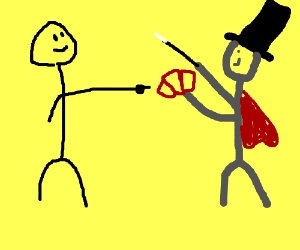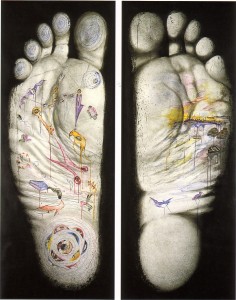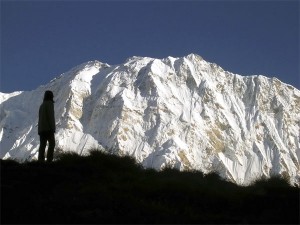When the Light Goes Out
 The Uses of Sorrow
The Uses of Sorrow
by Mary Oliver
Someone I loved once gave me
a box full of darkness.
It took me years to understand
that this, too, was a gift.
When We Want Something Else
 Today’s quote come from a dharma buddy (thanks, Lori!), who is reading — and highly recommends — Stepping Out of Self Deception, by Rodney Smith.
Today’s quote come from a dharma buddy (thanks, Lori!), who is reading — and highly recommends — Stepping Out of Self Deception, by Rodney Smith.
“Suffering is the desire for more choices than reality offers, but reality is without options. Our mind creates mental alternative where there are none in reality and we do so by bargaining with reality through our desires and fears.”
Back in Action
 Ah. After many days of almost continual bed rest, and with the help of an excellent physical therapist, the muscles in my back have released their vise-grip and I am back to “normal” — which of course does not mitigate the inevitable effects of gravity and the inescapable nature of the body to wear out — but still, I’m feeling fine and very happy to be back in action!
Ah. After many days of almost continual bed rest, and with the help of an excellent physical therapist, the muscles in my back have released their vise-grip and I am back to “normal” — which of course does not mitigate the inevitable effects of gravity and the inescapable nature of the body to wear out — but still, I’m feeling fine and very happy to be back in action!
And here’s what I have to report:
I have just signed up to participate in an excellent on-line study-and-practice course offered by Kittisaro and Thanissara. (Who often teach at IMS, but they live in South Africa, where they hold a month-long retreat every January, to which I hope to go — I’m on the wait list!)
The course is a go-at-your-own-pace program, organized in 3 modules, each consisting of 12 lessons. And it’s freely offered on a dana basis, which means that there is no cost, just the opportunity to make a donation — if you so choose.
Each lesson consists of 2 recorded talks, 2 (short) contemplative readings, an exercise in contemplative inquiry along with some contemplative exercises, a targeted meditation practice, and suggestions for integrating these practices into daily life. Plus there’s extra material, which consists of recorded chants, dharma talks and/or additional readings.
Here’s an example of the “Integrating Into Daily Life” suggestion from the first lesson is: During the day, take mini pauses of 5-10 minutes. Start with asking “How is it now?” and taking 3-5 long breaths. Then train your attention to steady within the body and breath during that time. You can do this in any posture during any activity.
If you’re interested in checking out the course — and I really hope you do! — click here. You’ll need to request a Username and Password before accessing the course material. But there’s no need to commit to anything…just get the name and password, log on, and take a look!
And if you do decide to take the course, send me an email here. Part of the intention of the program is to foster a community of practitioners, so it would be great to do the course with some buddies!
My Back Talks; I Listen
 My back is telling me that it’s not a good day to be sitting at the computer for very long, so no dharma post for today. I’ve got an appointment with a physical therapist tomorrow morning, who comes highly recommend by my most excellent qigong instructor, so I’m hoping all this will be straightened out very soon.
My back is telling me that it’s not a good day to be sitting at the computer for very long, so no dharma post for today. I’ve got an appointment with a physical therapist tomorrow morning, who comes highly recommend by my most excellent qigong instructor, so I’m hoping all this will be straightened out very soon.
Check back tomorrow.
Or the day after.
Learning Meditation at Monsanto
 I listen to a lot of Dharma Seed talks, but this was the first time I’d ever heard one where someone in the audience mention me! Not by name. But still. It was weird.
I listen to a lot of Dharma Seed talks, but this was the first time I’d ever heard one where someone in the audience mention me! Not by name. But still. It was weird.
The talk was given by Diana Winston (you can listen to it here). I don’t know Diana, but I have met her once, at one of the Dedicated Practitioner Program (DPP) retreats. So I decided to send her an email. Here’s what I wrote:
Dear Diana,
I was listening to one of your recent talks on Dharma Seed (12 Myths of Mindfulness) and I heard you tell the audience that Mindfulness Meditation had been taught at Monsanto, which of course was a shock to most people, but then someone said that there were a couple of people in the Dedicated Practitioner Program (DPP5) who had been in that program at Monsanto. Actually, to the best of my knowledge, there was only one person in the DPP5 program who had been at Monsanto, and that person is me.
I just wanted to let you know that the Insight Meditation program taught at Monsanto (that’s what they called it in 1998) was amazing. And for me, at least, life changing. Mirabai Bush and Steven Smith were the teachers. It was a 3-day silent retreat, held at the Fetzer Institute, and it was offered to anyone in the Monsanto organization — no matter what job, or at what level. The cost came out of CEO Bob Shapiro’s “discretionary” funds (which meant that your department didn’t have to pay for it) and it was time off in the middle of the week that couldn’t be counted against your vacation, and that your supervisor couldn’t say no to, no mater how much work there was to do. (It was simply Bob’s gift to each of us. A gift for which I will forever be grateful.)
It wasn’t offered as a way to make more money, or to be a better employee or anything like that. It was presented as a way to allow us to have “insight.” The announcement didn’t say exactly what kind of “insight.” That was left for us to decide for ourself. But what they offered was a straight-up vipassana-style sitting/walking/eating/etc meditation retreat. Plus one guided Metta meditation at the end.
I had never done anything like it before. I didn’t have any particular reason for going, except that it sounded interesting and I was curious to see what it would be like to spend 3 days in silence.
But I could tell from the very beginning that there was something really special about Mirabai. I couldn’t have articulated it then, but looking back on it, I believe it was her rare combination of selfless confidence and undefended, unrestricted friendliness that I was so drawn to. At the end of the retreat, after the last meditation (metta), I couldn’t stop crying. I was so deeply touched by the possibility of a vast, unlimited field of unconditional kindness….and the realization that I had somehow always felt cut off even from the possibility of such kindness…that I simply could not “snap back” into my corporate persona. So I just cried.
There is more to tell, but I will leave it at that.
I just wanted you to know something of what it was like to have been introduced to meditation at Monsanto.
May you be well, safe and happy,
Jan Rosamond
Radiant Zigzag Borrowing
 My back is much better today, but I don’t think it’s a good idea to stay at the computer for too long, so I’ll just take it easy and post this photo and quote from Radiant Zigzag Becoming, which is a lovely blog by my fellow Burma traveling companions, Jason and Jessica, which chronicals their continuing travels around the world (in this case, it’s a post from Provence).
My back is much better today, but I don’t think it’s a good idea to stay at the computer for too long, so I’ll just take it easy and post this photo and quote from Radiant Zigzag Becoming, which is a lovely blog by my fellow Burma traveling companions, Jason and Jessica, which chronicals their continuing travels around the world (in this case, it’s a post from Provence).
“You see, for me that God of the clergy is as dead as a door-nail. But does that make me an atheist? Clergymen consider me one — so be it — but you see, I love, and how could I feel love if I were not alive myself or if others were not alive, and if we are alive there is something wondrous about it. Now call that God or human nature or whatever you like, but there is a certain something I cannot define systematically, although it is very much alive and real, and you see, for me that something is God or as good as God. You see, when in due course my time comes, one way or another, to die, well, what will keep me going even then? Won’t it be the thought of love?”
— Van Gogh, at 28, in a letter to his brother Theo
The Way Things Are
 It hasn’t quite come to this (see photo), but my back seized up on me yesterday and I’m spending most of my time today flat on my back in bed.
It hasn’t quite come to this (see photo), but my back seized up on me yesterday and I’m spending most of my time today flat on my back in bed.
So all I can post for now is this:
I am of the nature to grow old; there is no way to escape growing old.
What We Talk About When We Talk About Mindfulness
 This month’s Mindfulness magazine features an interview with ABC news anchor Dan Harris. He talks about what he calls “the best story of his career,” in which he goes from having an on-air panic attack, to drug abuse, to attending a 10-day meditation retreat at Spirit Rock…to eventually writing this new book — 10% Happier: How I Tamed the Voice in My Head, Reduced Stress Without Losing My Edge, and Found Self-Help That Actually Works–A True Story.
This month’s Mindfulness magazine features an interview with ABC news anchor Dan Harris. He talks about what he calls “the best story of his career,” in which he goes from having an on-air panic attack, to drug abuse, to attending a 10-day meditation retreat at Spirit Rock…to eventually writing this new book — 10% Happier: How I Tamed the Voice in My Head, Reduced Stress Without Losing My Edge, and Found Self-Help That Actually Works–A True Story.
In the interview, he has a lot of great things to say about mindfulness (e.g. “I love this practice. “It’s absolutely changed my life.”). But what’s especially refreshing is his take on how we (some of us) have come to talk about mindfulness.
He says, “For mindfulness to reach a broader audience, we need to have ambassadors who talk about it in a new way, who don’t use terms like ‘sacred space’ and ‘the goddess mother’ or collect crystals and listen to Cat Stevens a lot.
“We need people who can talk about it in a normal way that everyday people can relate to. We also need to lose phrases like ‘clearing the mind.’ Mindfulness doesn’t have anything to do with magically removing all the clamor. It’s about having a different relationship with the clamor.”
Right on, brother.
Meditation On Walking
 Today’s post is from Verses from the Center, written by Nagarjuna (2nd century C.E.), translated by Stephen Batchelor. (The pronoun change is mine.)
Today’s post is from Verses from the Center, written by Nagarjuna (2nd century C.E.), translated by Stephen Batchelor. (The pronoun change is mine.)
Walking
I do not walk between
The step already taken
And the one I’m yet to take,
Which both are motionless.
Is walking not the motion
Between one step and the next?
What moves between them?
Could I not move as I walk?
If I move when I walk,
There would be two motions:
One moving me and one my feet–
Two of us stroll by.
There is no walking without walkers,
And no walkers without walking.
Can I say that walkers walk?
Couldn’t I say they don’t?
Walking does not start
In steps taken or to come
Or in the act itself.
When does it begin?
Before I raise a foot,
Is there motion,
A step taken or to come
Whence walking could begin?
What has gone?
What moves?
What is to come?
Can I speak of walkers,
When neither walking,
Steps taken nor to come ever end?
Were walking and walker one,
I would be unable to tell them apart;
Were they different,
There would be walkers who do not walk.
These moving feet reveal a walker
But did not start her on her way.
There was no walker prior to departure.
Who was going where?
It’s Time.
 I’ve finally started reading The Snow Leopard, by Peter Matthiessen, which I’ve been meaning to read forever, but which I kept putting off — maybe because it seemed too masculine to me, all that trekking through rain and snow etc., even though it was recommended to me over and over as a gorgeously written mediation on the meaning of life, more of an inner journey really, a deeply thoughtful exploration of love and loss, etc. etc.
I’ve finally started reading The Snow Leopard, by Peter Matthiessen, which I’ve been meaning to read forever, but which I kept putting off — maybe because it seemed too masculine to me, all that trekking through rain and snow etc., even though it was recommended to me over and over as a gorgeously written mediation on the meaning of life, more of an inner journey really, a deeply thoughtful exploration of love and loss, etc. etc.
I’d owned a paperback copy for years, picking it up every so often, but always putting it back down. I’d packed it and moved it with me from house to house several times, but finally gave it away in one of my periodic house cleaning purges. Then when the author died this year, and I read another great review of this, his most famous book, I almost went out and bought a brand new copy, but somehow I just sort of forgot about it.
Now, I don’t know why, I’ve decided it’s time.
Here’s a sample:
A luminous mountain morning. Mist and fire smoke, sun shafts and dark ravines: a peak of Annapurna poises on soft clouds. In fresh light, to the peeping of baby chickens, we take breakfast in the village tea house, and are under way well before seven.
A child dragging bent useless legs is crawling up the hill outside the village. Nose to the stones, goat dung, and muddy trickles, she pulls herself along like a broken cricket. We falter, ashamed of our strong step, and noticing this, she gazes up, clear-eyed, without resentment–it seems much worse that she is pretty. In Bengal, GS says stiffly, beggars will break their children’s knees to achieve this pitiable effect for business purposes: this is his way of expressing his distress.
But the child that lies here at our boots in not a beggar; she is merely a child, staring in curiosity at tall, white strangers. I look to give her something–a new life?–yet am afraid to tamper with such dignity. And so I smile as best I can, and say “Names-te!” “Good morning!” How absurd! And her voice follows as we go away, a small clear smiling voice–“Namas-te!”–a Sanskrit word for greeting and parting that means, “I salute you.”
***
Yep.
It’s definitely time.
